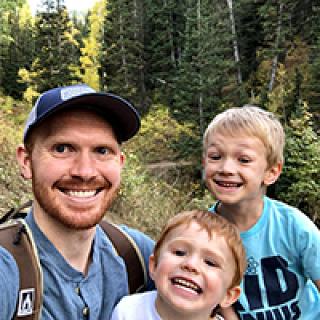
Austen Slade, MD
PGY-4 Resident 2019
Navigating medical school, and finally arriving at the decision to go into urology is an endeavor in and of itself. Exploring the various urology programs across the country and deciding on which program is best suited for you, and will best prepare you for your future as a urologist adds an entirely new level of complexity that can be daunting during your fourth year of medical school. I ultimately arrived at my decision to come to Utah based on 1. its ability to prepare me as a future urologist 2. location and 3. resident work life.
1. Ability to prepare me as a urologist
Urology is a surprisingly broad field encompassing surgical and medical management of various pathologies (stones, BPH, ED, male infertility, oncology, reconstructive, female, pediatric, just to name a few…). I wasn’t sure at the time of applying if there were one particular area of urology that I wanted to focus on in the future but I wanted to have the experience that would let me make an informed decision about it. At Utah we’re fortunate to be well represented in all aspects of Urology which offers broad and balanced training but also the opportunity to find your niche. It’s comforting to know I’ll have ample exposure and operative experience to tackle almost any problem that comes to my future clinic.
2. Location
Chances are if you are looking into the University of Utah program, it may have something to do with the surrounding geography. I spent a lot of time in and around mountains growing up, and didn't realize how important access to them would be until I was in Houston for medical school. Even if you do not like extreme sports, the ability to go for a simple walk in the woods with minimal travel is a luxury we’re spoiled with. All of Utah's outdoor recreation is close enough to be enjoyed over the weekend (with plenty of closer destinations for during the week) and was an undeniable huge draw to training here for me.
3. Resident work life
I knew residency would only be 5 years (ideally), but having a good and supportive work environment was still a desirable aspect for me. From my experience on an away rotation here, I knew residents were getting early and ample operative experience, and that the people in the program in general were great to be around. The attendings here cater their teaching to each resident and we’re just small enough that nobody falls through the cracks. My duty hours average to be around 65 hours a week, there are certainly peaks and troughs as part of that average, but it allows me to pursue and maintain other life interests such as family time, running, and cycling. The more I reflect back on the last 4 years spent here, I can’t imagine wanting to go anywhere else.
PGY-4 Sample Rotation Schedule
As a PGY-4 resident, you are the most senior resident on nearly all rotations and begin to hone laparoscipic, robotic, and open surgical skills.
| Day | What to Expect |
| Monday/Wednesday |
AM: Rounds followed by didactic conference then off to the OR for cases at University of Utah, Primary Children’s, Huntsman, or Private hospital rotation. Only the occasional day in clinic. PM: Finish off with rounds. |
| Tuesday/Thursday/Friday |
AM: Rounds followed OR for cases at University of Utah, Primary Children’s, Huntsman, or Private hospital rotation. Only the occasional day in clinic. PM: Finish off with PM rounds. |
